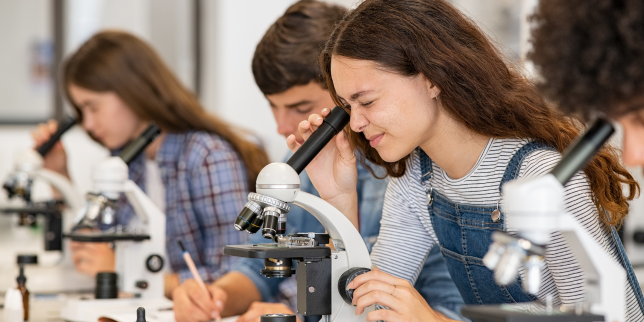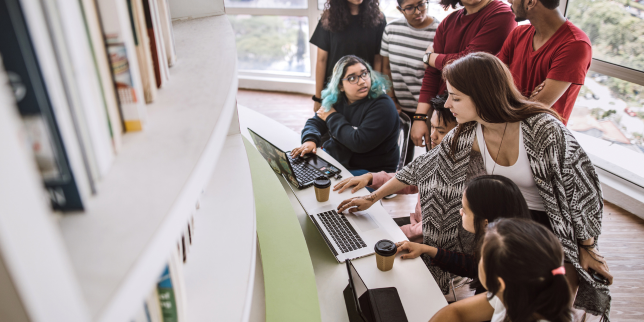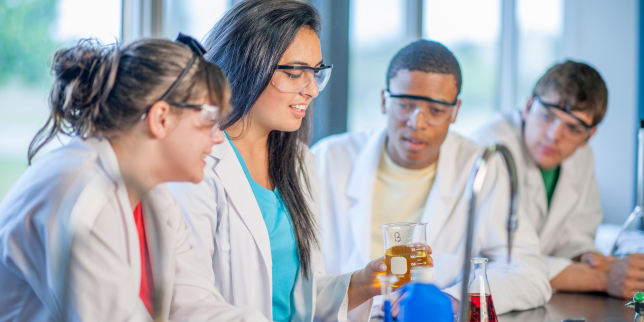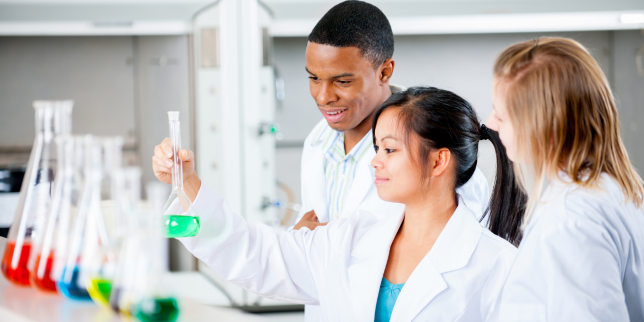Motivation
Why is Laboratory-Based Learning Important?
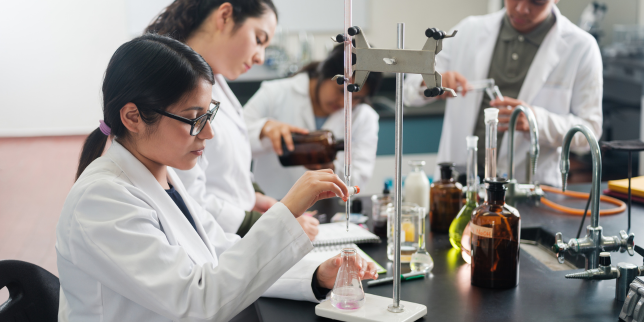
It is no exaggeration to say that proper laboratory-based education is indispensable when it comes to equipping students with the necessary skills and knowledge they need in the real world.
Laboratory work offers a range of benefits, from problem-solving skills and independence in data wringer to teaching ramified concepts through practical experimentation.
By providing an immersive environment for experimentation and hair-trigger thinking, lab learning encourages creativity and encourages deeper engagement with wonk subjects than traditional classroom lectures can offer learners.
In this blog post, we will explore why laboratory-based learning is important for developing important life skills such as tampering thinking, risk management, communication, and collaboration which are vital for success not only academically but moreover professionally.
Introducing an Overview of Laboratory-Based Learning
Laboratory-based learning is an heady and constructive way of educating students in the sciences.
This tideway allows for hands-on learning, where students can explore theories and concepts through experimentation. It provides an opportunity for students to interact with the material in a way that is not possible through traditional lecture-based instruction.
Through laboratory-based learning, students are worldly-wise to develop hair-trigger thinking skills, and problem-solving abilities, and proceeds a deeper understanding of the subject matter.
This tideway is particularly salubrious in the sciences, as it allows students to observe and test theories in a real-world setting.
Laboratory-based learning is a valuable tool for any science student seeking a increasingly engaging and hands-on learning experience. With science lab equipment rhadamanthine increasingly available, this tideway to learning is increasingly wieldy than overly before. It can moreover be well-timed for use in other subjects, such as history or art, to enhance student engagement and understanding.
Exploring the Benefits of Laboratory-Based Learning
Laboratory-based learning is a fascinating and innovative tideway to education that has been gaining popularity in recent years. Through hands-on experiments and interactive experiences, students are given the opportunity to delve deep into the subject matter and truly understand it on a practical level.
From the sciences to the arts, laboratory learning has revolutionized the way we teach and learn, offering many benefits to students. Not only does it help to reinforce important concepts and theories, but it moreover allows for creativity and innovation to flourish.
By making mistakes and learning from them, students develop important problem-solving skills that will serve them well in any future career. The benefits of laboratory-based learning are numerous and undeniable, making it an heady and constructive way to learn.
Identifying Hands-On Skills Gained from Lab Experiences
Hands-on wits in the lab is an invaluable part of any science education. Not only does it indulge students to understand the theoretical concepts they learn in lectures, but it moreover helps to develop skills that will prove essential in their future careers.
Lab experiences provide opportunities to practice important skills, such as problem-solving, hair-trigger thinking, and data analysis. These activities moreover require precision and sustentation to detail, helping students to develop motor skills and hand-eye coordination.
Ultimately, identifying the hands-on skills gained from lab experiences helps students to largest understand their own strengths and areas for improvement, as well as prepare them for success in their future pursuits. It moreover provides a foundation for students to protract learning and exploring new ideas throughout their lives.
Examining the Role of Lab Learning in Higher Education
Higher education requires increasingly than just classroom lectures. Laboratories have long been a crucial component in the educational wits of budding scientists, engineers, and healthcare professionals.
Lab classes offer a hands-on tideway that allows students to practice the theories they learn in lectures, while moreover providing the opportunity for creative problem-solving and scientific discovery. Beyond just theoretical knowledge, lab learning enhances hair-trigger thinking, team building, and liaison skills.
With innovative technologies and modern laboratory equipment, students can perform experiments and work on projects that simulate real-life scenarios, preparing them for future careers. In today’s education landscape, laboratory wits remains an indispensable part of the higher education experience.
It is a crucial underpass that connects wonk knowledge with practical application, setting students up for success in their chosen fields.
Understanding How Lab Learning Can Whop Professional Careers
Staying up-to-date on the latest technologies and practices is crucial for up-and-coming and succeeding in your professional career. One way to do this is by taking wholesomeness of lab learning opportunities. These hands-on experiences requite professionals the endangerment to not only learn new skills and techniques but moreover to wield them in a real-world setting.
By immersing yourself in an environment where experimentation and exploration are encouraged, you can expand your knowledge and build the conviction needed to take on new challenges and responsibilities. Whether you’re a recent graduate or a seasoned professional, lab learning can help you stay competitive and protract to grow in your career.
Uncovering Strategies to Enhance Lab Learning Experiences
Laboratory classes are an essential component of science education, as they provide students with hands-on experiences that reinforce theoretical concepts. However, lab learning experiences can sometimes finger shredded from the rest of the coursework.
Fortunately, educators virtually the globe are nonflexible at work uncovering strategies to enhance lab learning experiences, making them increasingly engaging and valuable for students. These educators are exploring innovative approaches, like integrating technology and developing inquiry-based experiments.
By doing so, they are empowering students to take tenancy of their learning and wilt increasingly invested in the scientific process. With this unfurled dedication to improving lab experiences, the future of science education looks unexceptionable indeed.
Takeaway
In conclusion, laboratory-based learning presents a myriad number of benefits to learners. It enables them to develop their tampering and problem-solving skills which can be unromantic in a variety of variegated professional areas.
By getting involved in lab-based learning, whether it is at the elementary, secondary, or post-secondary level, students can whop their knowledge and wits in a way that will requite them a leg up when applying for higher or jobs in the future. Understanding the many benefits of lab-based learning is essential to powerfully prepare learners for successful outcomes later on in life.
Therefore, we must commit ourselves to not only improving our wangle to these types of experiences but moreover enhancing the strategies related to how we use labs so that future generations have an plane greater opportunity for success and excellence.
The post Why is Laboratory-Based Learning Important? appeared first on Stunning Motivation.



